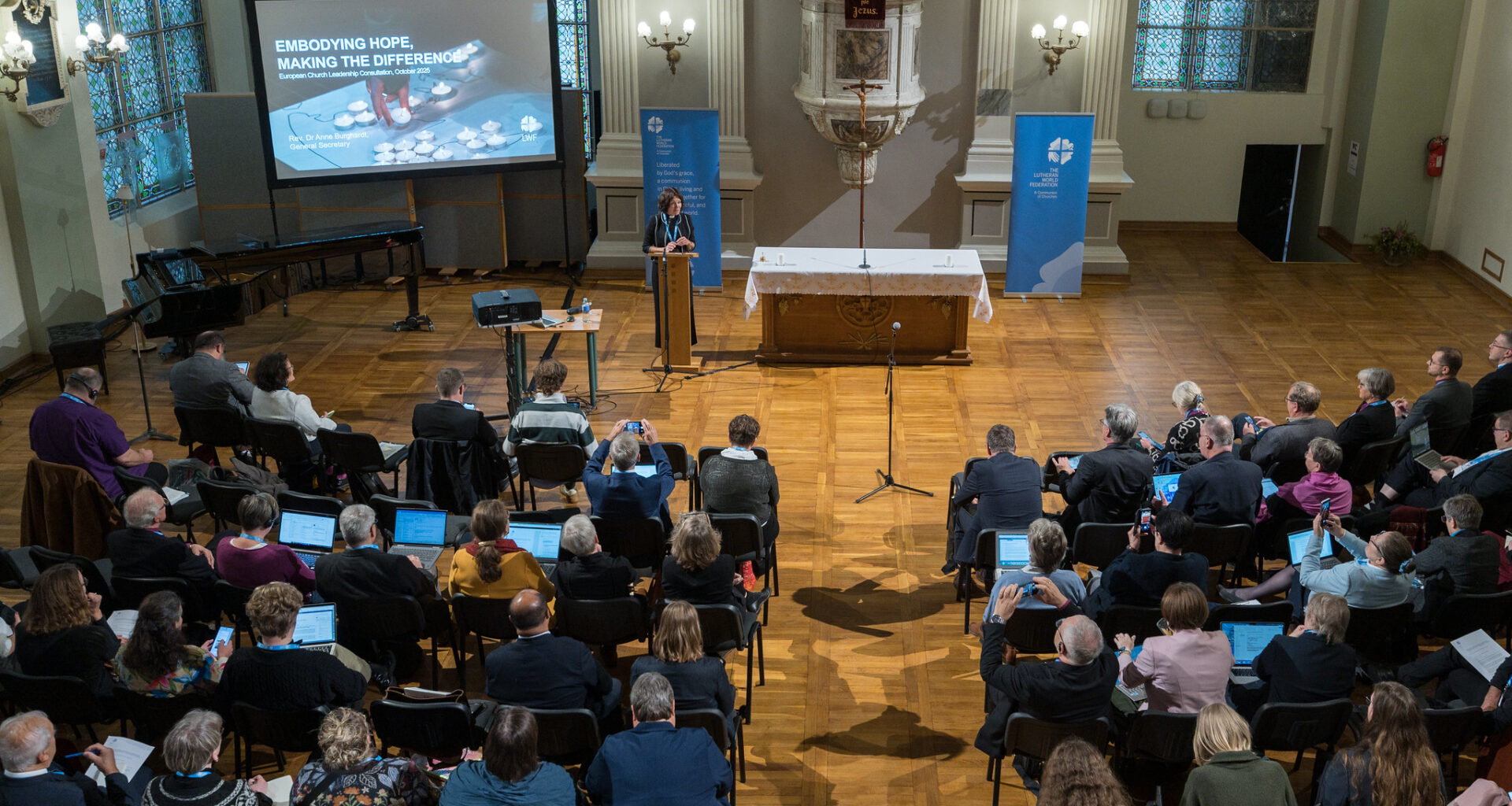During the opening session, the LWF leader outlined the differences between easy, often illusory, optimism for the future and the lasting hope of faith in God’s word which endures forever. This deep-rooted hope, she noted, stands at the center of the LWF Strategy and is grounded in the theology of incarnation, when “the Word became flesh and lived among us.”
Seeking justice and respectful relationships
Reflecting on the characteristics of this “incarnate theology,” she said it is always contextual, “discerning where the gospel must challenge cultural practices” or unjust systems and find a language that can be understood in the local context. It is both personal and communal, she noted, “for no one can be church alone and we cannot be truly human apart from others.” It embraces the whole of creation, “recognizing our responsibility to care for the earth and all living things,” she said.
Incarnate theology, Burghardt continued, “speaks with a prophetic voice,” not shying away from suffering, but seeking “justice and respectful relationships.” It is also compassionate and rooted in God’s mercy, she added, noting the importance of recognizing that “the suffering of our neighbor is our own suffering.” But she warned that this incarnate theology “becomes credible only when it is authentic, when it is lived out, when words are translated into deeds.”
In a world where democracy is being undermined, international cooperation questioned, and self-interest and protectionism promoted as top priorities by populist politicians, churches must remain inclusive, inviting and open to diversity and to the needs of others, she said. “The witness of the LWF can serve as an example of how to keep one’s identity yet maintain an openness” to others, the General Secretary insisted.
